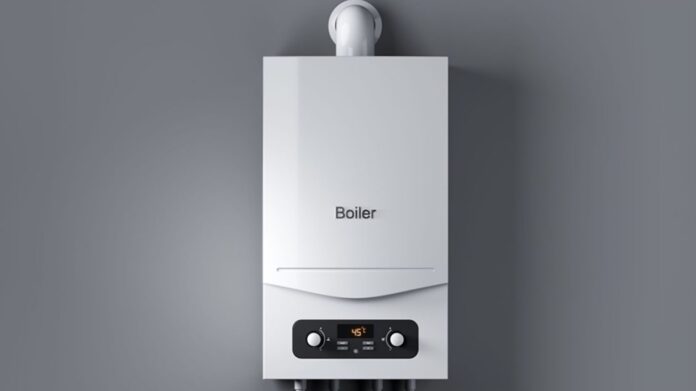Purchasing and installing a new boiler can be a significant investment that requires careful planning. For first-time buyers, understanding the process can help avoid costly mistakes and ensure long-term efficiency. A well-executed installation can also improve energy efficiency, reduce heating costs, and enhance home comfort.
Read on to explore the step-by-step guide to navigating boiler installation with confidence.
Assess Heating Needs and Boiler Type
Before selecting a boiler, it’s essential to evaluate the property’s heating demands. Some factors such as household size, hot water usage, and existing heating systems can influence the decision. Also, knowing the different types of boilers is crucial when assessing heating needs. These include:
- Combi Boilers: These are compact and efficient, providing hot water on demand without a storage tank. Combi boilers are also ideal for smaller homes.
- System Boilers: These require a cylinder for hot water storage, suitable for medium to large households with higher demand.
- Conventional Boilers: These are best for homes with traditional heating systems, utilizing a tank and cylinder.
Consulting a heating engineer can ensure the right boiler type is selected based on energy efficiency and household requirements. Furthermore, first-time buyers in Liverpool or nearby locations may qualify for financial assistance to offset installation costs and other related expenses. For instance, those eligible can contact Fairway Energy for a free boiler grant in Liverpool to explore available support options.
Choose the Correct Boiler Size
Selecting the right boiler size is essential for efficiency and performance. A boiler’s capacity, measured in kilowatts (kW), can determine its ability to heat a home and provide hot water. An undersized boiler will strain to meet demand, leading to cold spots and higher running costs.
Conversely, an oversized boiler cycles on and off frequently, wasting energy and increasing wear. A heating engineer can help calculate the ideal size by evaluating insulation quality, radiator numbers, and household occupancy. Proper sizing can also ensure optimal energy use and long-term reliability.
Select a Reputable Installer
A qualified installer can guarantee a safe and compliant boiler installation. For gas boilers, only Gas Safe registered engineers should handle the work, while OFTEC-accredited technicians are required for oil boilers. It’s important to research potential installers by checking certifications, reading customer reviews, and comparing instant quotes. A reputable professional can ensure adherence to building regulations, proper system setup, and warranty validation. Lastly, choosing the right installer can help minimize risks and ensure the boiler operates efficiently for years.
Prepare the Installation Site
Proper preparation can minimize installation delays. Some key considerations include:
- Space Requirements: Adequate clearance around the boiler is essential for safe operation, maintenance access, and proper ventilation. Manufacturers can specify minimum spacing requirements to prevent overheating and allow servicing. Restricted spaces can also lead to safety risks and inefficient performance. First-time buyers are encouraged to follow installation guidelines to ensure compliance and long-term functionality.
- Existing Pipework: Older pipework may need upgrades to match modern boiler specifications. Corroded or incorrectly sized pipes can reduce efficiency and cause leaks. A professional assessment can determine if replacements are necessary for optimal water pressure. Properly sized pipes can also help improve system performance and prevent future breakdowns.
- Flue Positioning: The flue must be positioned safely to expel exhaust gases without causing any hazards. Regulations can dictate minimum distances from windows, doors, and public pathways to prevent carbon monoxide exposure. Incorrect placement can lead to dangerous fumes entering the home. As such, it’s best to follow building codes and manufacturer recommendations for safe installation.
A site survey by the installer can also help identify necessary adjustments beforehand.
Understand Legal and Safety Requirements
Boiler installations must adhere to local building codes and safety standards. In the UK, gas boilers require a Gas Safe certification, while new installations often need Building Regulations compliance. The installer should handle necessary documentation, including:
Building Control Notification
After installation, the engineer must notify local building control to ensure safety and efficiency standards compliance. This legal requirement verifies the boiler meets UK building regulations. Failure to submit proper documentation can result in fines and invalidate warranties.
Benchmark Certificate
The Benchmark certificate is a vital record confirming the boiler was installed correctly by a qualified professional. It includes commissioning checks and confirms compliance with manufacturer guidelines. Homeowners should retain this document as proof of proper installation, which is typically required for warranty validation and future property sales.
Warranty Registration
Registering the boiler warranty with the manufacturer is essential to secure coverage for potential defects. Most manufacturers require registration within 30 days of installation. This can ensure free repairs or replacements for specified periods. Therefore, it’s essential to keep warranty documents safe, as they may be needed for servicing claims or resale purposes.
Plan for Energy Efficiency
Modern boilers offer high efficiency ratings, but additional measures can optimize performance. These include:
- Thermostatic Radiator Valves (TRVs): These allow room-by-room temperature control.
- Smart Thermostats: These enable remote scheduling and energy monitoring.
- Insulation Upgrades: These can help reduce heat loss, easing boiler workload.
Also, government incentives, such as ECO4 grants, may help cover boiler costs for eligible households.
Schedule Post-Installation Servicing

Annual professional maintenance is crucial for extending the boiler lifespan and preventing unexpected failures. A qualified technician can inspect key components, test for leaks, assess corrosion risks, and verify proper pressure levels. These routine checks can also identify minor issues before they escalate into costly boiler repairs. Most manufacturers mandate annual servicing to keep warranties valid, ensuring homeowners remain protected against defects.
Additionally, consistent boiler maintenance can maintain peak energy efficiency, reduce heating costs, and keep the home reliably warm throughout winter. For optimal performance, homeowners should also schedule servicing before the heating season begins.
Conclusion
A well-planned boiler installation can ensure efficiency, safety, and long-term savings. First-time buyers should prioritize professional assessments, proper sizing, and compliance with regulations. By following this checklist, homeowners can confidently navigate the installation process, securing a reliable heating solution for years.






